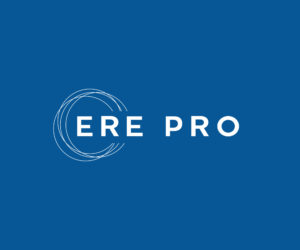Welcome to “The Most Interesting HR Stories of the Week,” a weekly post that features talent insights and information from around the web to kick off your weekend. Here’s what’s of interest this week:
Top Articles to Read Now
U.S. Employee Engagement Drops for First Year in a Decade
According to Gallup: “For the first year in more than a decade, the percentage of engaged workers in the U.S. declined in 2021. Just over one-third of employees (34%) were engaged, and 16% were actively disengaged in their work and workplace, based on a random sample of 57,022 full- and part-time employees throughout the year. This compares with 36% engaged and 14% actively disengaged in 2020, a year with unprecedented highs and lows.”
New York to Require Employers to Disclose Worker Monitoring
“Employers in New York must disclose electronic monitoring, such as internet access and videoconferencing, to new hires under a new law taking effect in May, as workers contend with an employment landscape that’s increasingly dependent on technology. The new law comes amid a worldwide push for greater privacy protections for consumers and workers, adding compliance obligations for businesses that must contend with general consumer privacy laws and employee-specific statutes.”
The U.S. Labor Movement Is Popular, Prominent and Also Shrinking
“Unionization efforts involving some of the most recognizable names in business have dominated headlines across the United States in recent months…The prominence of these organizing efforts, however, obscures the steady downward trend of union membership in the United States for more than four decades. In 1983, about 20% of employees belonged to a union; by 2021, that number had dropped to just over 10%.”
Google Team Rocked by Mental Health Crisis
“When Chewy Shaw left Google’s site reliability group in April, he told colleagues in a memo that interactions with his managers had made him depressed and suicidal. ‘I no longer feel psychological safety on this team,’ wrote Shaw, who is Black and had accused his leaders of racism. ‘I no longer have a manager focused on treating me in a “Googley” manner,’ he added, using his own shorthand to describe respect and fairness. ‘And so, with many tears, I am now looking for a Googley manager at the company who will take me.’
Design an Office that People Want to Come Back To
“The workplace trends that accelerated during the pandemic aren’t going away. Companies should use this moment to improve office environments in a way that boosts employee engagement and well-being, thereby encouraging attendance, increasing retention, and attracting new talent. The authors, who designed the Hana Bank headquarters during the Covid-19 crisis, recommend a few best practices: Consider what the space is for and name it accordingly, listen to what employees want and need, experiment within your own walls, and bring in partners to add value.”
I’m Stuck With an Anti-Semitic Labor Union
“As an observant Orthodox Jew born in the Soviet Union, I’m no stranger to resisting intimidation at significant cost. In 1971 my family petitioned authorities to leave the country after we suffered anti-Semitic harassment and physical assault. Our petition was denied and we were forced to live and work in that hostile environment for 15 years. Eventually, we settled in Israel, and I later established an academic career in New York. But the bigotry I fled has caught up with me.”
Leadership Training Shouldn’t Just Be for Top Performers
“When it comes to leadership development, the business case for investing in the ‘best’ given limited organizational resources appears straightforward: Individuals who have a demonstrated track record of success deserve to be recognized, right?…But the individuals who receive the most development are often the ones who arguably need it the least. The authors call this the leadership development paradox.”
Should Employees Choose Their Own Remote-Work Days?
Is it naive to treat people like adults when it comes to working remotely?.
Read the most interesting HR stories of past weeks here.
Upcoming Webinars
 Using Data to Drive Better Hiring Decisions (Thurs, Feb 3)
Using Data to Drive Better Hiring Decisions (Thurs, Feb 3)
What data are companies using to make hiring decisions today? What are challenges when screening, interviewing, and assessing candidates? How can a 360 view of candidates provide better insights to make smarter hiring decisions? Get the answers to these and other pressing questions, based on fresh research and data, to help you improve recruitment at your org. Register here.
 Fixing Candidate Experience With a Customer Experience Approach (Thurs, Feb 10)
Fixing Candidate Experience With a Customer Experience Approach (Thurs, Feb 10)
The consumer economy has dramatically changed expectations in nearly every aspect of human life, including the expectations of job candidates. All too often, though, today’s candidate experiences don’t meet these expectations. As a result, they’re opting out of hiring processes. Discover how to build full-journey candidate experiences rooted in customer-centric methodologies. Register here.
Discover more webinars to elevate your career, department, and organization.
ERE PRO
 Have you visited the world’s largest library of talent acquisition media yet? ERE Pro features deep dives into the recruiting challenges that real talent acquisition professionals face daily, from practitioners that have already tackled them. Learn from from leaders from Uber, Lowe’s, Marriott, DoorDash, and a wide range of other organizations across a broad span of industries. Gain insights here.
Have you visited the world’s largest library of talent acquisition media yet? ERE Pro features deep dives into the recruiting challenges that real talent acquisition professionals face daily, from practitioners that have already tackled them. Learn from from leaders from Uber, Lowe’s, Marriott, DoorDash, and a wide range of other organizations across a broad span of industries. Gain insights here.
Share the Knowledge
Did you find this post interesting? Then share the knowledge! Please consider forwarding this to friends and colleagues.
Additionally, got questions? Feedback on a story? Or want to pitch a story idea? Get in touch with TLNT editor Vadim Liberman at vadim@tlnt.com.
And to continue receiving recruiting intelligence to power your career, department, and organization, subscribe to the TLNT Daily Newsletter.
Thanks for reading!
